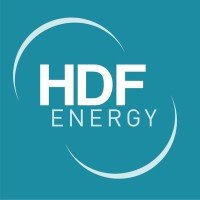Aker Horizons and Statkraft to explore Hydrogen in India and Brazil
Brazil is the world’s fourth-largest consumer of fertilisers, accounting for about 8% of global demand.

Aker Clean Hydrogen and Statkraft agreed to jointly explore green hydrogen and ammonia production opportunities in India and Brazil, targeting local steel and fertiliser industries.
The collaboration brings together Aker Clean Hydrogen, a global integrated hydrogen, ammonia and methanol producer building on Aker’s 180 years of industrial heritage, and Statkraft, a leading developer and generator of renewable energy with a substantial experience and presence in India and Brazil.
“We are excited to join forces with Statkraft to speed up the transition from grey to green solutions in India and Brazil,” said Knut Nyborg, Chief Executive Officer of Aker Clean Hydrogen. “The potential environmental benefits from decarbonising hard-to-abate industries like the steel and ammonia industry in India and the fertiliser industry in Brazil are substantial. Both India and Brazil are large consumers of hydrogen, have supportive governmental policies and benefit from world-class renewable energy resources, which offers significant opportunities for green hydrogen and ammonia production.”
Emissions from the steel and ammonia industries contribute to close to 9% of the global greenhouse gas emissions and are classified as hard-to-abate sectors. Green hydrogen provides an emission-free alternative to decarbonising these industrial sectors and an opportunity to increase the security of the supply of the two commodities.
Cooperation in India
Aker Clean Hydrogen and Statkraft have agreed to explore joint development opportunities of fully integrated renewable power generation and green hydrogen production in India, targeting domestic hard-to-abate industries such as the steel industry and ammonia for domestic use and export. The steel industry in India produces about 100 million tonnes of steel annually. In India, green hydrogen can be used to replace grey, fossil fuel-based hydrogen, coal and natural gas as fuel and feedstock. This will significantly reduce CO2 emissions while bolstering the country’s energy security, making it less vulnerable to energy market volatility.
India currently consumes approximately 7 million tonnes of grey hydrogen per year, making it the world’s second-largest hydrogen consumer. The country’s current hydrogen demand is expected to reach around 12 million tonnes by 2030 and about 28 million tonnes by 2050. India’s commitment to reach net-zero by 2070, announced during the 26th UN Climate Change Conference, will further increase green hydrogen demand in one of the fastest-growing economies in the world.
Cooperation in Brazil
In Brazil, Aker Clean Hydrogen, Statkraft and Sowitec, a company specialising in developing renewable wind and solar assets, aim to establish power-to-X projects in Bahia jointly. The first project opportunity being pursued is a large-scale hybrid project, which combines renewable power generation and hydrogen and ammonia production for the local fertiliser industry.
Brazil is the world’s fourth-largest consumer of fertilisers, accounting for about 8% of global demand. Currently, the country imports over 80% of its consumption. Recently the Brazilian government enacted their 2022-2050 National Fertilizer Plan, seeking to reduce the Brazilian dependency on imported fertilisers by, amongst other means, attracting and supporting foreign investments.
The state of Bahia has favourable renewable resources from wind and solar and a robust agricultural industry that imports large amounts of grey, fossil fuel-based fertilisers. Replacing imported grey ammonia with locally-produced green ammonia will support the decarbonisation of the local agricultural industry and reduce import dependency while creating new green industrial opportunities. The project is scheduled to be in commercial operation by 2027.
“With considerable renewable energy production and market activities in India and Brazil, Statkraft is well positioned to capture green hydrogen opportunities in these two huge and important energy markets. Developing such opportunities helps us grow our business and reduces greenhouse gas emissions in India and Brazil,” said Jürgen Tzschoppe, Executive Vice President International Power of Statkraft.
